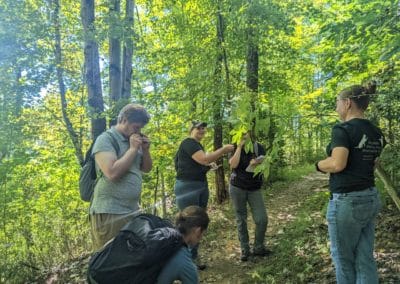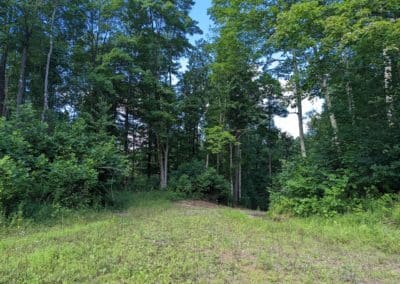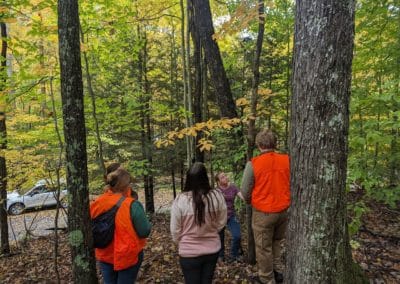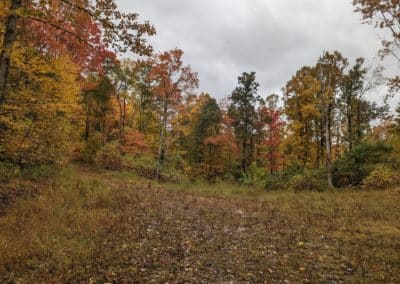Forest Technology (A.S.)
Forest Technology prepares you for a career in forest resources
The two-year sustainable resource management Forest Technology program provides students with the skills for a successful career in forestry. Graduates are immediately able to find jobs at the technical level. Forestry agencies and wood using industries employ forest technicians as an important part of their forest management team. Students interested in a baccalaureate degree can easily transition to the Forest Resource Management specialization of the Sustainable Resource Management degree. Courses will involve a mixture of traditional lectures and outside labs, including hands-on learning at the college’s 300-acre George A. Myles Experimental Forest.
This educational program in forest technology leading to the degree in associate of science is a candidate for accreditation by the Society of American Foresters (SAF), under the forest technology standard.
Program Statement of Purpose
The Forest Technology degree at Davis & Elkins College will prepare you to become a professional forester. We bridge the knowledge and skills of a forestry education with cutting edge use of technology anchored in the principles of sustainability to inspire our students to engage the beauty of the natural world.
“Randolph County is a natural classroom and laboratory for studies in the conservation and management of our natural resources. It is logical that D&E should embark on a new curriculum to make use of the possibilities for its students in the college’s backyard.”
Forest Technology Students Get Training in…
- Dendrology
- Silviculture
- Forest Ecology
- Forest Ecosystem Protection
- Wood and Forest Products
Program Learning Outcomes…
- Recognize and identify woody plants and ecological communities native to the Appalachian region along with the abiotic and biotic challenges facing these systems.
- Demonstrate the ability to accurately and precisely quantify forest resources and develop appropriate sustainable forest management recommendations to achieve landowner objectives.
- Understand the science behind different silvicultural systems and when/how to apply them.
- Become familiar with forest products and their markets in the Appalachian region.
- Understand how to perform timber harvesting operations in a sustainable manner that protects land, water, and air resources.
- Understand the use and application of Geographic Information Science and Systems, and conduct spatial analysis (eg GIS, GPS, etc.) and be familiar with other natural resource technological advances.
- Become knowledgeable of forest ownership and stakeholders and understand how federal, state and local laws and regulations govern the practice of forestry and the process through which forest policy is developed.
- Gain hands on skills needed for forest management, including chainsaw skills, basic first aid, and safety around harvesting equipment.
- Demonstrate proficiency in the preparation and presentation of oral and written communication to both professional and nonprofessional audiences.
- Promote a high level of professional ethics while engaging and supporting diversity, equity, and inclusion in the field of forestry and in public relations.
More Information
Apply Now!
Leading the Way.
Lead the Way at D&E. Contact us today.




